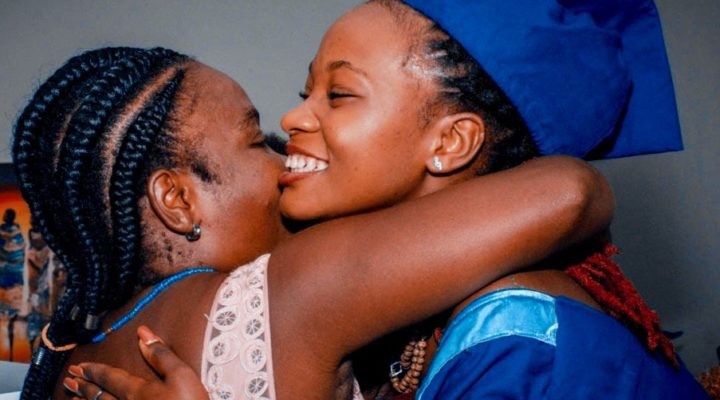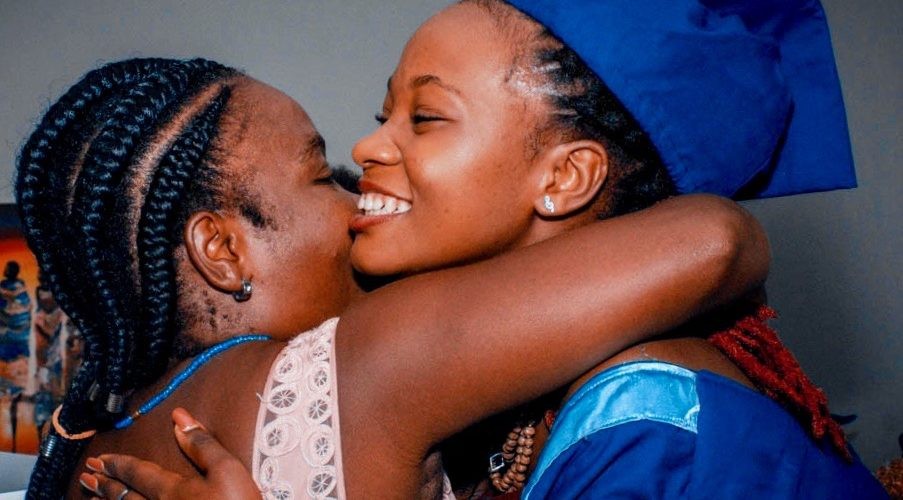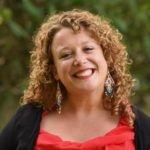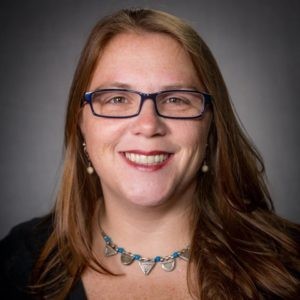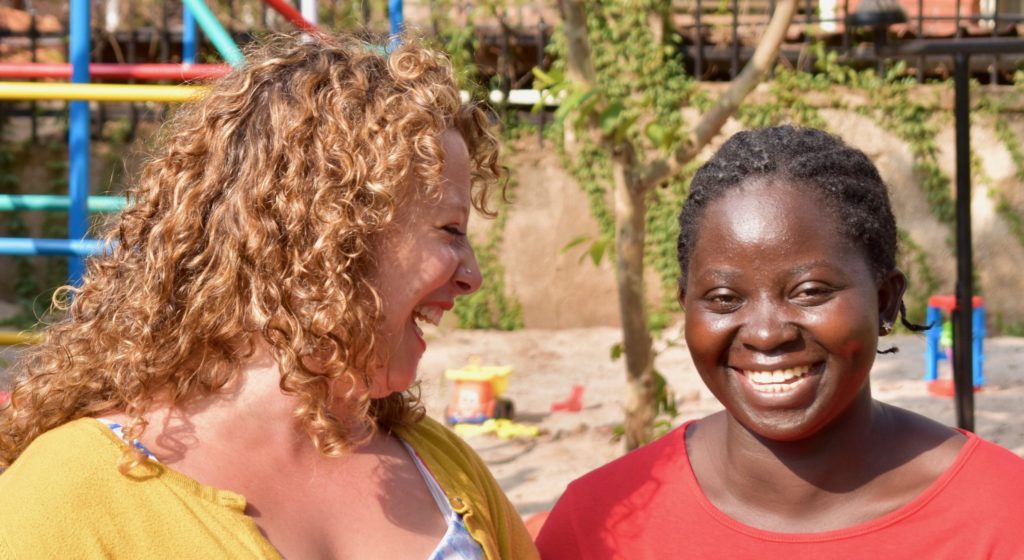“I learned from a 5-year-old prophet on my run this week that every day is a gift from God because that’s why it’s called ‘the present,’” a pastor said recently during the greeting time at church.
The present of every new day is, indeed, a special gift and opportunity from God.
Another speaker recently explained, “You will meet an average of three new people a day for the rest of your life.” He presented an incredible challenge: In every encounter, we have a decision to make about the impact we have — positively or negatively — on someone’s day and life. These simple, brief, normal interactions present an impact, for better or worse.
Especially in these days of COVID, people often walk around with narrower windows of stress tolerance. With the collective grief inflicted by COVID chaos, people more quickly and easily go into fight, flight or freeze mode.
I see this all the time: Strangers erupting in road rage over someone going too slow in front of them. People saying cruel things to each other. The stress and survival responses are happening without people thinking about what they are doing or saying.
Fight, flight or freeze
Fight, flight or freeze operates from our amygdala before allowing our cognitive processes to react. It’s a response to something our brain has deemed a “direct threat.” This does not depend upon whether the actual event is physically, emotionally or spiritually threatening.
This understanding reflects my work with trauma survivors in the United States and Uganda during the last 14 years. While we have seen God heal and transform people’s lives in amazing and profound ways through our ministry in Uganda, the actual process of healing and transformation is incredibly messy. People often embark down a hard, windy road full of heavy, hard booby traps of grief, regret, nightmares, bitterness and anger. This is the true reality of actually healing.
While I have witnessed God doing incredible miracles in my life and in the lives of so many we work with, healing hearts is a miracle that takes years. It does not come instantly. It comes through courageously walking down this difficult road — stepping out on an uncertain, uneven and, at certain points, tumultuous path full of pain.
Let’s be clear: Everyone’s healing journey is messy.
Let’s be clear: Everyone’s healing journey is messy. Not just mine. Not just the refugees’ we work with in Uganda. Everyone’s. Healing is hard and messy. It takes an incredible amount of courage to embark on this challenging road. But amazingly, we are not alone. God is with us. Every step along the way. Every part of this journey.
The gift of being present
I most often experience the profound love and presence of God most tangibly through community. After all, we were not created to live alone.
The last few years have been incredibly difficult. Yet through these challenging times, I have felt God holding me in his amazing love during the hardest of days. I have felt this often through experiencing others being present to me.
One recent example occurred during an 11-day period when I visited five states, taking both trains and rental cars to share updates with partners. With all the travel our family does, both domestic and international, our suitcases never last very long. Two days before I was set to return to our current U.S. home base, I rolled my bag into my hotel room, and a wheel broke off. I thought, “Oh, no!” I was only there for 24 hours and had a busy speaking and meeting schedule. There was limited time, and I did not have a way to buy a new suitcase.
Because Bob was present to me, I experienced God’s presence and love. When we are present with others, God metaphorically changes the weight of others’ suitcases.
The next morning, I walked down the stairs to meet Bob, the pastor of the church I was visiting, and his wife, Debbie. Bob took my bag to put it in the car and realized it was tilting and one of the wheels had fallen off. After church, while saying goodbye, he turned to Christen, one of the associate pastors, and said: “Please take her to buy a new suitcase. We can’t let her leave like this.”
That afternoon, after lunch, Christen and her husband, Brian, bought me a new suitcase and helped me repack my new bag before dashing to the airport to catch my flight to the last state of my trip. Although it might seem like a simple gesture, it had a big impact on me.
Because Bob was present to me, I experienced God’s presence and love. When we are present with others, God metaphorically changes the weight of others’ suitcases.
Although the burdens, fears, anxieties and challenges we face still are the same weight, the weight on our hearts, minds and spirits often changes. A small transformation of that weight happens when others are present to us, hear us, support us, love us, empathize with us and “hold” the burdens of heavy weights of life with us.
‘You are welcome here’
Moments such as these have impacted me profoundly. A moment like this led me to become a Christian 20 years ago. I did not grow up in church, but one Sunday I attended church because a friend invited me. As I walked up to the entrance, Ivy, a woman with short red hair and glasses met my eyes. She greeted me warmly. She simply took a few minutes with me to introduce herself, give me a hug and say, “You are welcome here.”
I thought to myself, “Wow, what is different about her?” This question led me to learn the message of the gospel, give my life to Christ and dedicate my life to full-time vocational ministry a few years later. Through her presence, I felt God’s presence and love. I felt safe and welcomed into a new community that showed me love, support and care as I began to “grow up” in my faith and began to discern God’s clear calling in my life. God used the few minutes of words and hugs from this stranger — and new friend — to profoundly change and transform my life.
This is the power of human connection. God created us to be in community with one another. As human beings, we have a deep, innate need to be loved, seen, heard and in community. We were not created to live life alone.
This is the power of human connection. God created us to be in community with one another. As human beings, we have a deep, innate need to be loved, seen, heard and in community. We were not created to live life alone.
A professor’s influence
Another powerful encounter with this divine presence came through Melissa Browning, one of my professors. Through her classes and friendship, I experienced God’s powerful love and presence. Whenever Melissa talked to me, it felt like I was the only person in the room. She listened, genuinely cared and always was fully present. She saw her students through the lens of their potential and encouraged and nurtured them to be all God intended them to be. She believed together we could make the world a better place. Unfortunately, Melissa was taken from this world too soon at the age of 43. However, the legacy she left through her gift of being present with others continues in hundreds of people God impacted through her.
Our ministry at Amani Sasa is part of her legacy. She was an adjunct professor at McAfee School of Theology during my final year there, just before I moved to Uganda. Her classes had a direct and lasting impact on my approach to ministry. That approach, in turn, has shaped Amani Sasa and the way we minister among the most vulnerable refugees in Uganda. Our ministry team welcomes refugees as they are and walks alongside them as they experience safety, healing, transformation and empowerment.
Learning from the most vulnerable
The last year and a half have been incredibly difficult for everyone worldwide because of COVID and the mental health difficulties it presents. But for Uganda’s most vulnerable people, living on less than a $1 a day and without any “social safety nets” or access to the vaccine, the COVID pandemic has caused absolute economic devastation.
Initially, the cases of COVID remained relatively low in Uganda, with around 40,000 cases between March 2020 and April 2021. But in May, the various variants arrived, and the cases started to skyrocket. Over the last five months, we have had more than 80,000 additional cases. During the summer, the government decreed another full countrywide lockdown for two months in an attempt to curb the spread of COVID.
While this lockdown was designed to protect people from getting sick, it kept residents in the poorest Ugandan and refugee communities from working for another extended period. For someone already living on less than $1 a day, not being able to work means their children do not eat that night.
Sara’s story
Sara’s family has lived in Uganda the last three years. After arriving in Uganda, Sara and her husband started a small business with their savings. So, they were able to pay for rent and food and to send their seven children to school. During the first four-month lockdown in 2020, they could not work from home and were unable to sell their items. Without these sales, their seven children were going hungry. Desperate, they sold their business capital so their children could have food for as many days as possible.
When the lockdown lifted, they did not have the means to support themselves. Sara’s husband fell sick, compounding their difficult situation. Sara applied for start-up capital and launched another small business. But as hard as she tried, she struggled to earn enough money to feed her children and pay her husband’s mounting medical bills. When the next lockdown began in June for two months, she once again could not work because of movement restrictions and other regulations. She once again had to sell everything she owned, including her business capital, just to feed her children.
When Sara came to our ministry center at Amani Sasa, she was welcomed as God’s beloved child. The social worker listened with compassion. She purchased food for Sara’s family that day and delivered it to her home. When the social worker arrived, Sara opened the door and gasped. She wept. When she caught her breath again, Sara said, “Through this, I know God remembers us.”
“Through this, I know God remembers us.”
Being fully present with others helps them experience God’s presence and love. Although this was a simple act of bringing food to a starving family, to Sara, her husband and seven children, it meant the world.
There are billions of Saras in the world who live on less than $1 a day. They need access to the vaccine, medical care and food, as well as to be fully safe and free from violence and exploitation. As Christians, this is our collective call — to love our neighbors as ourselves. To Jesus, neighbors are not defined by the color of their skin, gender or proximity to us. Neighbors are defined as fellow human beings, fellow beloved children of God.
‘Our job is to love’
Just a month ago, I met one of God’s beloved human beings at a gas station in Georgia. He tried to buy something to eat when the credit card scanner indicated the card had insufficient funds.
He said to the clerk, “I thought I had enough” as I walked up to check out, and I overheard only the last part of the conversation. But the expression on the man’s face concerned me. I asked what he was trying to buy. The clerk replied: “A pack of Reese’s Cups; he was trying to find something he could afford to eat.”
I purchased the Reese’s Cups and walked quickly out to where he was frantically trying to pump air in his tires. I looked inside the car and was horrified. There was a woman, a teenage daughter, a dog and a very full backseat. It appeared they might be experiencing homelessness and the man was trying to buy dinner for his family. I thought to myself, no struggling parent should ever have to feed their family one Reese’s Cup apiece for dinner.
I thought to myself, no struggling parent should ever have to feed their family one Reese’s Cup apiece for dinner.
But even for those who are not living in extreme poverty, the reality is we all need to experience God’s presence and love. God does not often put us in a position to take away the pain or fix the situation. That is not our job. Our job is to love our neighbor as ourselves. Through this love, we have the power to give our neighbor a new suitcase to carry the weight of their world. The heavy weight of life can and does change when others are fully present with us, fully seeing us, hearing us and walking alongside us. We were not meant to walk alone.
How will you influence your three?
The direct reality is God, in fact, always is present with us, every single day, every moment. The truth is often, as humans, we forget, especially when we are going through the most difficult times or moments of our lives.
Today, I simply want to leave you with a question: What impact will you have on the three new people you will meet today? Or the 21 people you will meet this week? Will you be the person through whom they experience God’s deep love and presence? Or will you be the person who puts additional fire or ice on their fight, flight or freeze stress response?
Remember, your choice can have the profound power to make or break someone’s day. You can give new life and new hope, and perhaps you can even encourage someone to be brave enough to embark on the path of their own journey of healing and renewal. Your choice has the power to change someone’s life. After all, Ivy’s choice changed mine.
Missy Ward-Angalla serves as the founder and executive director of Amani Sasa and as field personnel with the Cooperative Baptist Fellowship in Kampala, Uganda. Amani Sasa ministers among vulnerable refugees by offering safety, wholeness and empowerment. Missy is a graduate of Wesleyan College and McAfee School of Theology, where she studied Christian social ethics.
Related articles:
Baptists pushing hospitality beyond comfort zones — and discovering deeper spirituality
When this pandemic subsides, may compassion continue /Opinion by Dennis Foust
The recovery of empathy /Opinion by H.Stephen Shoemaker

